Octiainyourpocket - A Deep-frozen Pocket-worm


More Posts from Octiainyourpocket and Others


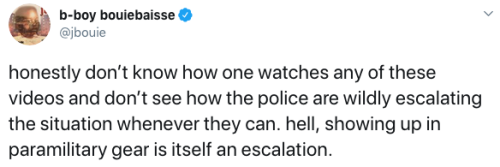

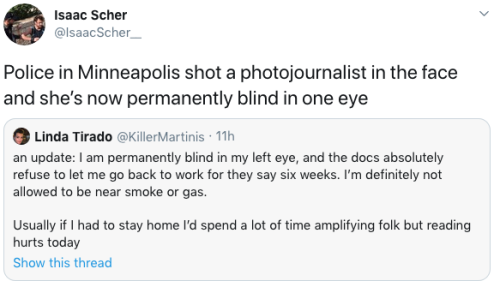
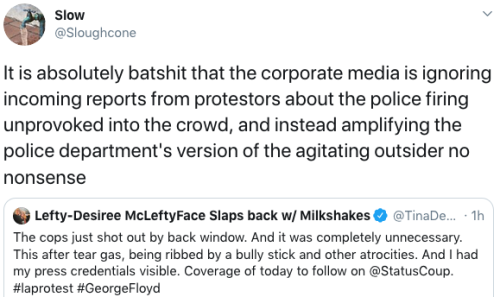
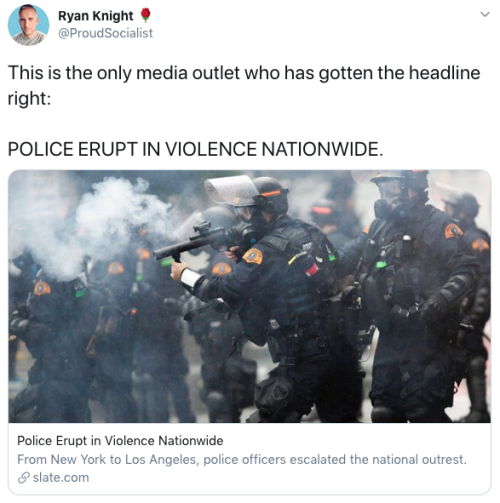

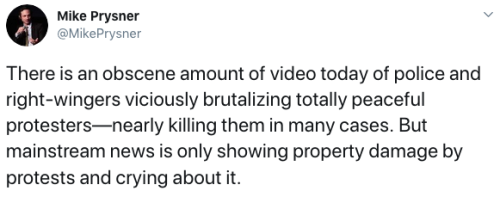
I heard too many sounds at once and now I am a bitch
An ebook reader could potentially change your life!
I have discovered that“don’t judge a book by it’s cover” does not apply to people with adhd.
If the book in question does not display the EXACT kind of cover art, texture, and size I want I will not buy it. I just won’t. I don’t care if it has won multiple awards, I don’t care if everyone is recommending it, if it make brain go “hands and eyes no like >:0″ I will not purchase it.

READ. EVERY. WORD. OF. THIS. Account of a medical team out in St. Paul last night.
Link to original tweet thread.
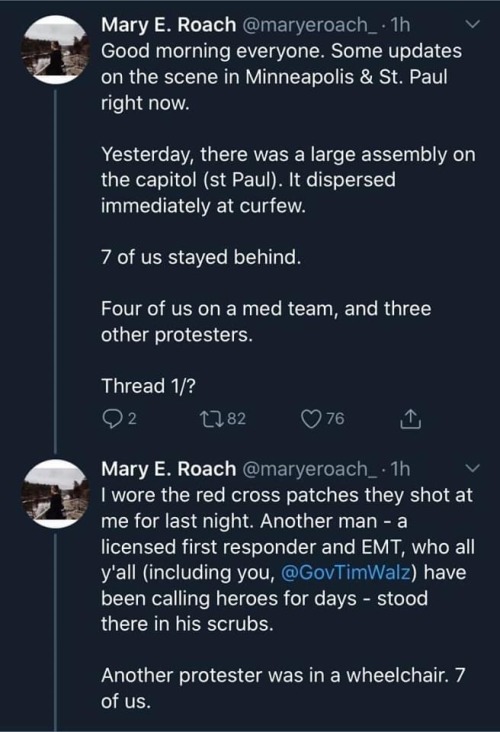

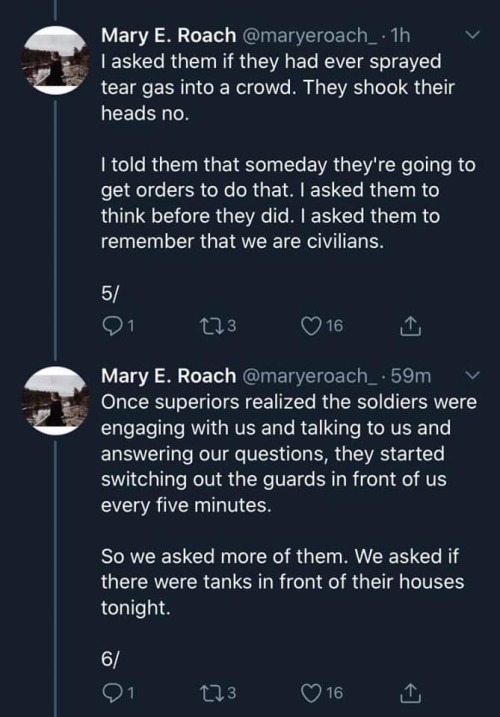
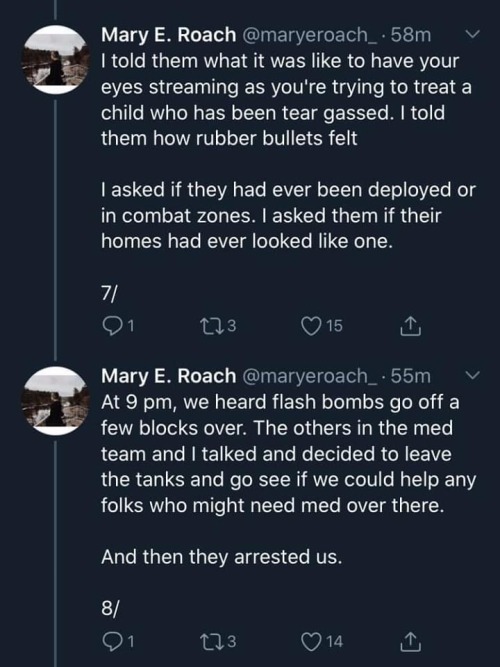
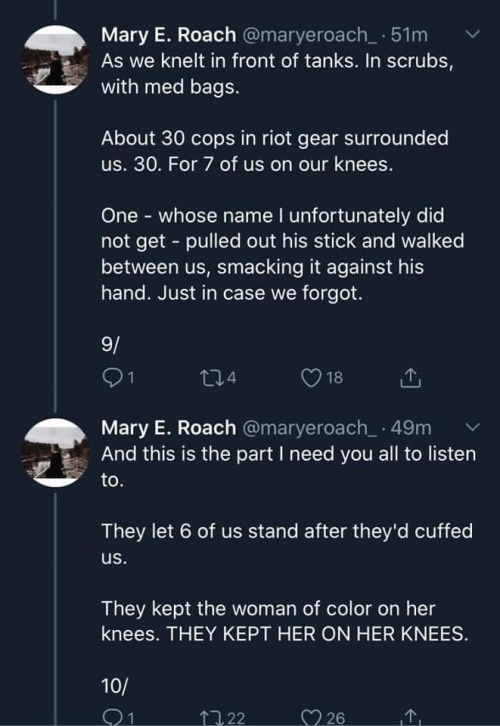

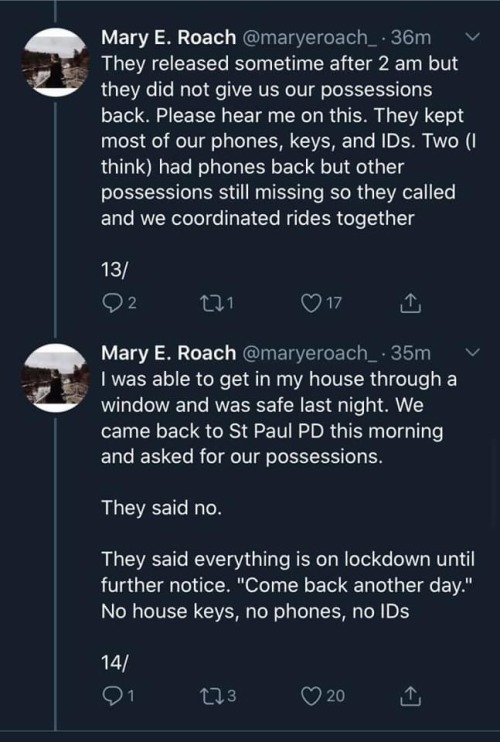
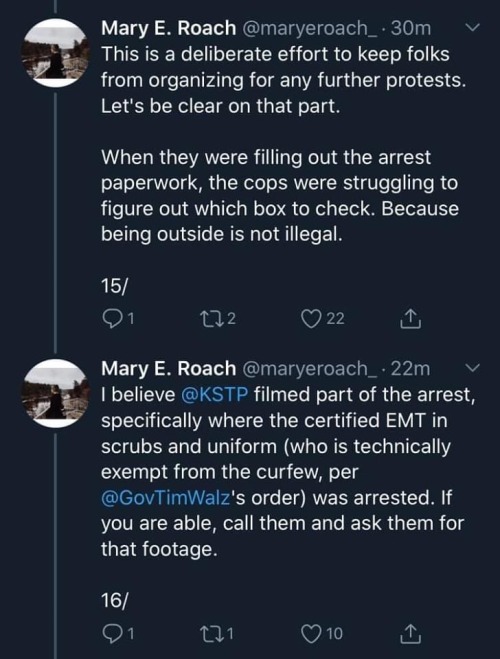

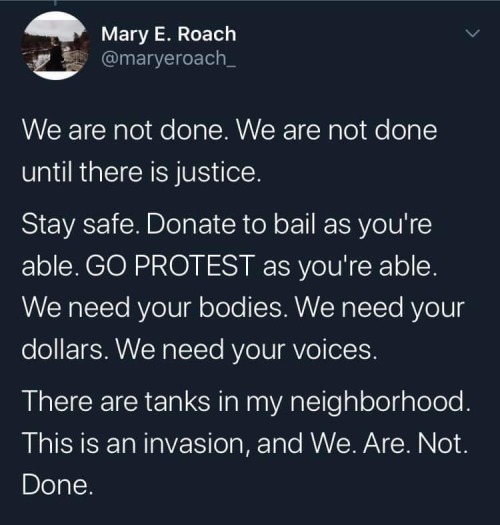


WHETHER OR NOT YOU’RE PROTESTING PLEASE REBLOG THIS INFORMATION!
The Police are becoming more and more violent at these protests and it’s important that everyone stays safe and prepared for ANYTHING to happen!
REBLOG TO SAVE A LIFE!
adhd gothic
- your alarm rings but you are too tired. you set an alarm for five minutes later and go back to sleep. when you wake again, it is light outside and the alarm never went off. it was set for five hours later. you could have sworn you set it to five minutes later.
- your clothes are organized in piles on the bedroom floor. occasionally a shirt moves from one pile to another. you do not remember moving it.
- your desk at work is organized but not. “i have a system” you tell yourself. you are worried someone will discover the truth. you must not let others know you are struggling. your desk at work is organized but not.
- you did not take your meds. your brain is static. you did take your meds. your brain is accelerated static. last week your meds worked well. are they working well today? did you remember to take them? did you even refill your prescription last month?
- your assignment is due in november. it is september. your assignment is not due soon. it is end of october, but your assignment is not due until november. it is november 15th. where is your assignment? you go to bed, it is now november 27th. why do you turn in work late?
- you go to work to make money. you know you make money because you are told you do. your bank account doesn’t change much. you spend more because you are told you make money. you haven’t looked at your bank account for a few weeks now. it makes you anxious.
- there was something you were supposed to do. you didn’t do it, and you disappointed someone. you do not know who. it will come to you eventually, perhaps.
- you trip over a half-knit scarf. one of the needles is missing. you tried to learn knitting a year ago and forgot about the scarf. how long has this been on the floor? where is the other needle? you do not remember how to knit.
- you find yourself growing bored and unconsciousness slips into your periphery. you throw yourself into your work. if you are busy you will not sleep. if you are bored you will sleep. fight the sleep as long as you can. you cannot sleep at night.
- you do not eat and you eat too much.
- your friends ask why you do not reply to their messages. it is overwhelming and you are so tired. you send too many messages at once and are filled with guilt. your friends keep texting you and you do not know why.
- your eyes blur when you read. you skim the words and do not retain. you skimmed this post and did not retain. you do not remember what the first bullet on this post was. you might not have read this last bullet, either. you will still tag the post as though you read it. you understand its essence, and that is okay.
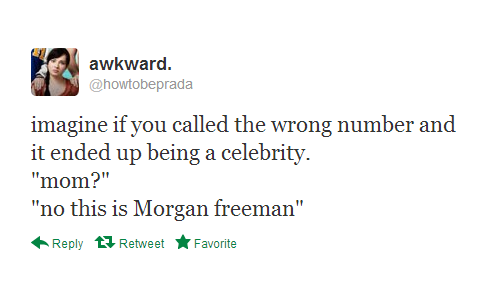

A new tool lets artists add invisible changes to the pixels in their art before they upload it online so that if it’s scraped into an AI training set, it can cause the resulting model to break in chaotic and unpredictable ways.
The tool, called Nightshade, is intended as a way to fight back against AI companies that use artists’ work to train their models without the creator’s permission. Using it to “poison” this training data could damage future iterations of image-generating AI models, such as DALL-E, Midjourney, and Stable Diffusion, by rendering some of their outputs useless—dogs become cats, cars become cows, and so forth. MIT Technology Review got an exclusive preview of the research, which has been submitted for peer review at computer security conference Usenix.
AI companies such as OpenAI, Meta, Google, and Stability AI are facing a slew of lawsuits from artists who claim that their copyrighted material and personal information was scraped without consent or compensation. Ben Zhao, a professor at the University of Chicago, who led the team that created Nightshade, says the hope is that it will help tip the power balance back from AI companies towards artists, by creating a powerful deterrent against disrespecting artists’ copyright and intellectual property. Meta, Google, Stability AI, and OpenAI did not respond to MIT Technology Review’s request for comment on how they might respond.
Zhao’s team also developed Glaze, a tool that allows artists to “mask” their own personal style to prevent it from being scraped by AI companies. It works in a similar way to Nightshade: by changing the pixels of images in subtle ways that are invisible to the human eye but manipulate machine-learning models to interpret the image as something different from what it actually shows.
Continue reading article here
-
 mickeydoesthings liked this · 2 months ago
mickeydoesthings liked this · 2 months ago -
 meowpurrwhateverr reblogged this · 2 months ago
meowpurrwhateverr reblogged this · 2 months ago -
 salem-halem liked this · 2 months ago
salem-halem liked this · 2 months ago -
 yenoodlethings reblogged this · 2 months ago
yenoodlethings reblogged this · 2 months ago -
 herequeerstilllivinginfear liked this · 2 months ago
herequeerstilllivinginfear liked this · 2 months ago -
 an-adhd-infested-nerd liked this · 4 months ago
an-adhd-infested-nerd liked this · 4 months ago -
 pinkfestivalpeanuttree liked this · 4 months ago
pinkfestivalpeanuttree liked this · 4 months ago -
 soprobrochacho reblogged this · 8 months ago
soprobrochacho reblogged this · 8 months ago -
 soprobrochacho liked this · 8 months ago
soprobrochacho liked this · 8 months ago -
 jssangel reblogged this · 8 months ago
jssangel reblogged this · 8 months ago -
 feralplantlover liked this · 9 months ago
feralplantlover liked this · 9 months ago -
 violetspots-2007 liked this · 10 months ago
violetspots-2007 liked this · 10 months ago -
 shakysmiles liked this · 10 months ago
shakysmiles liked this · 10 months ago -
 fluffy-undertale liked this · 1 year ago
fluffy-undertale liked this · 1 year ago -
 toriliashine liked this · 1 year ago
toriliashine liked this · 1 year ago -
 paddycake5 liked this · 1 year ago
paddycake5 liked this · 1 year ago -
 pinkcherryblossomwonderland liked this · 1 year ago
pinkcherryblossomwonderland liked this · 1 year ago -
 flowerlds-blog liked this · 1 year ago
flowerlds-blog liked this · 1 year ago -
 maskedim liked this · 1 year ago
maskedim liked this · 1 year ago -
 okkotsukki liked this · 1 year ago
okkotsukki liked this · 1 year ago -
 chaos-from-basil liked this · 1 year ago
chaos-from-basil liked this · 1 year ago -
 jollycapybara reblogged this · 1 year ago
jollycapybara reblogged this · 1 year ago -
 jollycapybara liked this · 1 year ago
jollycapybara liked this · 1 year ago -
 countessravengrey liked this · 1 year ago
countessravengrey liked this · 1 year ago -
 thevastnessoftime liked this · 1 year ago
thevastnessoftime liked this · 1 year ago -
 kanallamassideblog reblogged this · 1 year ago
kanallamassideblog reblogged this · 1 year ago -
 tails-is-cool liked this · 1 year ago
tails-is-cool liked this · 1 year ago -
 shira-a liked this · 1 year ago
shira-a liked this · 1 year ago -
 nanobreaker liked this · 1 year ago
nanobreaker liked this · 1 year ago -
 givemethelore liked this · 1 year ago
givemethelore liked this · 1 year ago -
 amuser-96 liked this · 1 year ago
amuser-96 liked this · 1 year ago -
 penultra liked this · 1 year ago
penultra liked this · 1 year ago -
 wolfsrahne28 liked this · 2 years ago
wolfsrahne28 liked this · 2 years ago -
 lostspaceghost liked this · 2 years ago
lostspaceghost liked this · 2 years ago -
 lesbianqueenofhighgarden liked this · 2 years ago
lesbianqueenofhighgarden liked this · 2 years ago -
 star-the-honeybun reblogged this · 2 years ago
star-the-honeybun reblogged this · 2 years ago -
 star-the-honeybun liked this · 2 years ago
star-the-honeybun liked this · 2 years ago -
 nocturnalgemstones reblogged this · 2 years ago
nocturnalgemstones reblogged this · 2 years ago -
 number1goat liked this · 2 years ago
number1goat liked this · 2 years ago -
 whygod-why liked this · 2 years ago
whygod-why liked this · 2 years ago -
 aneldritchbeing liked this · 2 years ago
aneldritchbeing liked this · 2 years ago -
 butimnotasexyrussian reblogged this · 2 years ago
butimnotasexyrussian reblogged this · 2 years ago -
 rattatart liked this · 2 years ago
rattatart liked this · 2 years ago -
 forevermagik reblogged this · 2 years ago
forevermagik reblogged this · 2 years ago -
 kon-dra-ty liked this · 2 years ago
kon-dra-ty liked this · 2 years ago -
 saphoblin reblogged this · 2 years ago
saphoblin reblogged this · 2 years ago -
 saphoblin liked this · 2 years ago
saphoblin liked this · 2 years ago
